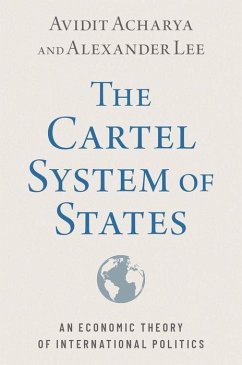Why are the citizens of neighboring regions that lie across an international border often subject to very different governance systems? In The Cartel System of States, Avidit Acharya and Alexander Lee provide a powerful and field-shaping theory to address a fundamental issue in world politics: the character of the territorial nation-state. They contend that the defining feature of the modern territorial state system works as an economic cartel in which states have local, bounded monopolies in governing their citizens. States refuse to violate each other's monopolies, even when they could do so easily. Drawing from the centuries long process of modern state formation, The Cartel System of States explains both how the present system of territorial states--by no means a foregone conclusion in retrospect--took over the world and how it might change in the future.








